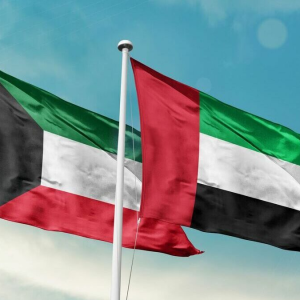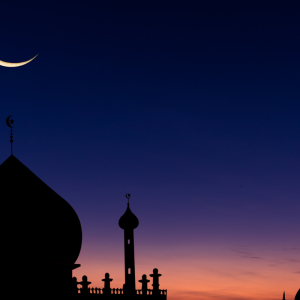The UAE premium school fees have now crossed Dh200,000 per year, making the country the leader in education costs across the Gulf Cooperation Council (GCC) region. This sharp increase highlights growing demand for top-quality education and shows how the UAE is outpacing its neighbors in schooling expenses.
Parents in the UAE are ready to pay high fees to ensure their children get the best education possible. But what is driving these high costs? And how do fees in the UAE compare to other GCC countries? Let’s explore these questions and what they mean for families across the Gulf.
Why Are UAE Premium School Fees So High?
The main reason for the rising UAE premium school fees is the growing demand for international curricula and world-class facilities. Many premium schools offer British, American, IB (International Baccalaureate), or other internationally recognized programs. These schools also invest heavily in advanced technology, sports, arts, and extracurricular activities.

Parents want their children to compete globally, so they choose schools with excellent teachers, small class sizes, and modern infrastructure. This level of quality comes with higher costs that are passed on in the fees.
Additionally, inflation and operational costs, such as teacher salaries, facility maintenance, and security, have increased. All these factors add to the rising school fees in the UAE.

How Do UAE School Fees Compare with Other GCC Countries?
The UAE premium school fees are now higher than in any other GCC country. For example, in Saudi Arabia, top private schools usually charge between Dh100,000 and Dh150,000 annually. In Bahrain and Oman, fees are generally lower, often below Dh100,000.
The UAE’s willingness to pay more reflects its position as a regional education hub. Many expatriate families live in the UAE, and demand for premium schooling remains strong.
Here is a quick comparison:
| Country | Typical Top School Annual Fees (Approx.) |
|---|---|
| UAE | Dh200,000+ |
| Saudi Arabia | Dh100,000 – Dh150,000 |
| Bahrain | Dh70,000 – Dh90,000 |
| Oman | Dh60,000 – Dh80,000 |
| Qatar | Dh120,000 – Dh160,000 |
| Kuwait | Dh110,000 – Dh140,000 |
This data shows how the UAE stands out for its premium school fees, confirming its status as the most expensive market in the GCC.
What Does This Mean for Families in the UAE?
The rising UAE premium school fees put financial pressure on many families. Parents often plan their budgets carefully and sometimes make tough choices between schools or opt for longer payment plans.
Some families seek scholarships or financial aid offered by schools, but these are limited and highly competitive. As a result, many parents have to increase their education budgets significantly.
Despite the high fees, many families see the value in investing in quality education. Good schools improve children’s chances of admission to top universities worldwide and better career opportunities.
The Impact of Fee Increases on the Education Sector
The rise in UAE premium school fees has pushed schools to improve their offerings even more. Many schools are expanding campuses, adding new subjects, and hiring experienced international teachers to justify the higher costs.
However, this also raises concerns about accessibility. Some experts worry that the high fees could create a gap where only wealthy families can afford the best education.
The government and education authorities in the UAE have been working on policies to balance quality with affordability. For example, some new regulations encourage transparency in fee structures and set rules on fee increases.
What Schools Are Charging Over Dh200,000?

Several premium schools in the UAE have already crossed the Dh200,000 mark in annual tuition fees. These include well-known British, American, and IB schools located mostly in Dubai and Abu Dhabi.
Examples include:
- Certain branches of the British curriculum schools in Dubai’s upscale neighborhoods.
- International Baccalaureate schools with strong academic records.
- Private American schools with advanced sports and arts facilities.
These schools often include additional costs like registration, uniforms, and transport, which add to the total yearly expense.
Are There More Affordable Options?
Yes, many good schools in the UAE charge less than Dh100,000 per year. These schools offer strong education but may not have all the premium features.
Government schools and community schools are also an option, though many expatriates prefer private premium schools for international curricula.
Parents looking for value can explore schools accredited by UAE’s Knowledge and Human Development Authority (KHDA) or the Abu Dhabi Department of Education and Knowledge (ADEK), which rate schools on quality and affordability.
The Role of Private Schools in the UAE Education Market
Private schools dominate the UAE education landscape, especially for expatriates. These schools offer a wide range of curricula, including British, American, Indian, IB, and French.
Because many expatriates prefer curricula aligned with their home countries or global standards, private schools thrive and charge premium fees to maintain quality and facilities.
The large number of expatriates creates a diverse education market where premium fees reflect both quality and demand.
Government Measures to Control Fee Inflation
The UAE government is aware of the challenges posed by high school fees. Education regulators like KHDA in Dubai and ADEK in Abu Dhabi monitor school performance and fee structures.
Recently, some measures have been introduced to control sharp fee increases:
- Schools must justify fee hikes and gain approval from authorities.
- Transparent fee schedules are required for parents.
- Some schools are encouraged to offer scholarships and financial support.
These efforts aim to make premium education more accessible without compromising quality.
How Do Fee Increases Affect Student Enrollment?
Rising fees sometimes lead to changes in enrollment patterns. Some families move children to more affordable schools or switch to government schools.
However, many families still prefer to invest in premium schools for the perceived long-term benefits.
Schools are balancing fee increases with efforts to retain students by improving their services and facilities.
Future Outlook for UAE School Fees

The trend of rising UAE premium school fees is expected to continue but at a moderated pace. Competition between schools, government regulations, and changing family preferences will influence fees.
Technological advances, such as blended learning and online education, may offer cost-saving alternatives in the future.
Parents should stay informed about school options, fee structures, and payment plans to make the best decisions.
Conclusion: UAE Leads GCC with Highest School Fees
The UAE has set itself apart as the GCC leader in education costs, with UAE premium school fees crossing the Dh200,000 mark. This reflects the country’s ambition to offer world-class education and attract expatriates seeking the best for their children.
While the high fees present challenges, many families continue to invest heavily in education, believing in the value of quality schooling.
Understanding these trends helps parents, schools, and policymakers work towards an education system that balances excellence with affordability for the future.
Read More: Fire in fuel warehouse Sharjah causes thick black smoke over city












